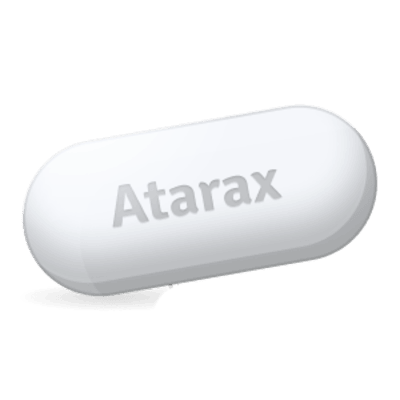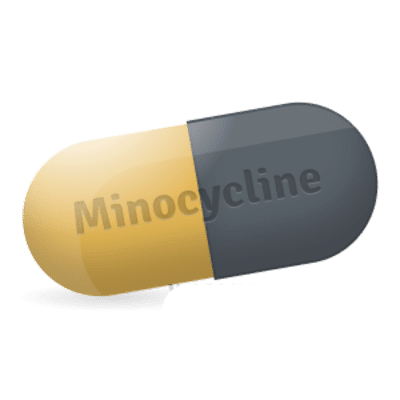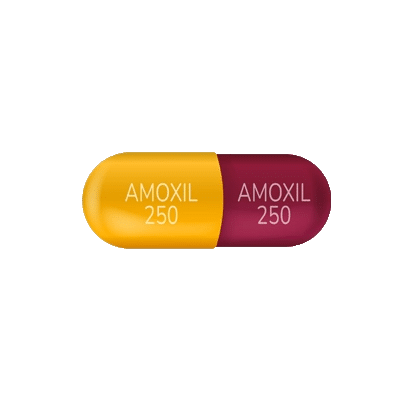Atarax is great for allergies, especially when itching is needed. However, I sometimes feel slightly tired and sleepy after taking it. Its a bit of a nuisance, but it still outweighs the benefits.

Atarax
- Quality products
- Support 24/7
- Fast delivery
What is it?
Atarax is an antihistamine commonly known as Hydroxyzine. It has sedative and anxiolytic properties, making it an effective treatment for allergies. Its ability to positively affect cognitive abilities, improve memory and attention makes it attractive to a wide range of patients. The drug does not cause psychological dependence, which adds to its popularity among doctors and patients. Due to its ability to relax smooth muscles and act as a muscle relaxant and antiemetic, Atarax is often used to relieve itching in skin conditions such as urticaria, eczema and dermatitis. Although it begins to act after undergoing metabolic transformations into the active form cetirizine, its effect as an antihistamine remains noticeable at all stages.
Composition
The composition of Atarax, also known as Hydroxyzine, is of interest to anyone seeking to understand its mechanism of action and effects. The main component, the active substance, is hydroxyzine, which determines the antihistamine and sedative properties of the drug. In addition, it contains other components that help with stability and absorption.
- Hydroxyzine is the main active ingredient responsible for antihistamine and anxiolytic properties.
- Cetirizine is the active form into which hydroxyzine is converted, continuing to provide antihistamine action.
- Other excipients that help improve the absorption and bioavailability of the drug in the body.
Hydroxyzine is converted into cetirizine after administration, continuing to perform its main function in the fight against allergic reactions and having a softening effect on the nervous system. This makes it suitable for a variety of medical situations requiring a mild sedative effect without the risk of addiction.
How to use?
The use of Atarax requires strict adherence to the prescribed dosage to achieve the optimal effect. Adults are recommended to take 25 to 100 mg per day, spreading the doses throughout the day to maintain a constant level of the active substance in the body. In some cases, such as psychiatric practice, the dosage may be increased, but this should be done under strict medical supervision.
- Take the drug orally, cutting the daily dose into several doses to achieve the best effect. This avoids surges in concentration and reduces the risk of side effects.
- The duration of the course of treatment usually does not exceed four weeks, and it is important to follow the doctors recommendations regarding the duration of use.
- Particular attention should be paid to the dosage for the elderly, as well as patients with impaired renal or hepatic function, where a lower dose is selected.
It is important to remember that this drug should be used only as prescribed by a doctor in order to exclude the risk of adverse reactions and get the maximum benefit from treatment.
How does it work?
Atarax works by blocking histamine receptors, which reduces allergic symptoms and anxiety. As an antihistamine, it minimizes the effects of histamine, a biologically active substance that causes some of the signs of allergy, such as itching and inflammation. At the same time, Hydroxyzine improves cognitive function, supporting attention and memory, making it indispensable for use in situations that require mental stress.
The sedative properties of this drug also help in conditions that require relaxation of smooth muscles, such as in certain stress-related conditions. This allows the drug to be widely used in medical practice to relieve allergic reactions, including itching caused by urticaria, eczema or dermatitis. Transformation into cetirizine, the active form, continues to support these effects, providing a stable therapeutic result.
In addition, the drug can be used as a muscle relaxant, providing support to patients with increased muscle tension, which makes it useful in a variety of treatment situations. However, it is important to follow the doctors recommendations to achieve the best results and minimize possible side effects.
Indications
Atarax is indicated for a wide range of allergic and anxiety disorders, thanks to its unique combination of antihistamine and sedative properties. This drug can be prescribed for the treatment of conditions that cause itching and increased nervousness.
- Treatment of allergic itching caused by urticaria, dermatitis or eczema, thanks to its ability to block histamine receptors.
- Reduction of sedation and anxiety associated with increased nervous tension or stressful conditions.
- Use as a muscle relaxant to relieve muscle tension, which increases comfort and improves the general well-being of the patient.
This effect makes Atarax a universal remedy suitable for the treatment of various conditions that lead to itching and nervousness, which significantly improves the quality of life of patients.
Contraindications
Despite the widespread use of Atarax in medical practice, it is recommended to exercise caution when using it, taking into account possible contraindications. Studying all aspects of contraindications will help to avoid unwanted consequences.
- Hypersensitivity to components such as hydroxyzine or cetirizine, which cannot be ignored.
- Porphyria is a rare hereditary disease that can be exacerbated by the drug.
- Pregnancy and lactation due to the possible impact on fetal development and on the infant through breast milk.
Understanding the individual characteristics of each patient and a detailed assessment of contraindications will help to avoid complications and ensure safe and effective use of Atarax.
Side effects
Like many medications, Atarax may have side effects. These effects may vary depending on the sensitivity of the body and whether the dosage is taken correctly. However, knowing the potential side effects allows patients to be more attentive and respond promptly to changes in the condition.
- The most common include drowsiness and fatigue, which can affect daily activities and concentration.
- Discomfort may manifest itself in difficulty breathing, swelling of the face, which requires immediate medical attention.
- Other sensations may occur, such as confusion or increased irritability, which can be unpleasant, but manageable with proper support from a doctor.
It is also worth considering possible effects on vision, such as blurring and double vision, as well as gastrointestinal disturbances, which include nausea and loss of appetite. These effects are rare, but knowing they are present allows patients and doctors to be more aware and take appropriate action in a timely manner.
Frequently asked questions
Atarax Reviews and Experiences
I used Atarax to relieve the annoying itching associated with allergies. The drug works quickly and effectively. I consider the only downside to be a slight dry mouth, but this is incomparable with the improvement in the skin condition.
After the prescription of Atarax, I felt significant relief from allergic dermatitis. I stopped experiencing constant irritation and itching, which allowed me to focus on everyday activities without discomfort. In my practice, this remedy has become a real salvation.









